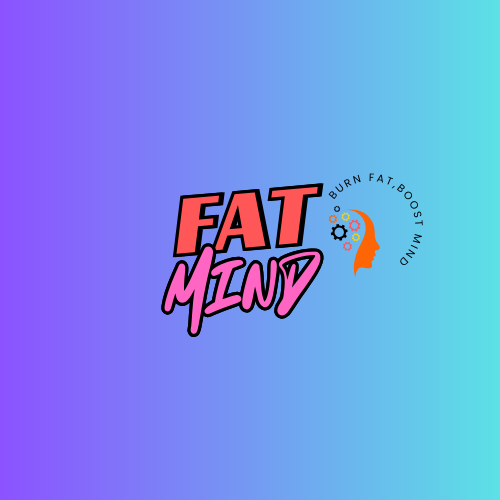Introduction: Why Mental Health Matters
Mental health is just as important as physical health, yet it often takes a backseat in our daily lives. The World Health Organization (WHO) defines mental health as a state of well-being where an individual can cope with life’s stresses, work productively, and contribute to their community. But mental health isn’t just about the absence of illness it’s about achieving emotional, psychological, and social well-being.
In this guide, we take a holistic perspective on mental health, exploring its key components, the factors that influence it, and actionable strategies to improve overall mental well-being.
The Pillars of Mental Health
Mental health is shaped by multiple factors. Here are the four key pillars:
1. Emotional Well-Being
- The ability to regulate emotions and handle stress effectively.
- Self-awareness, self-acceptance, and emotional resilience.
2. Psychological Well-Being
- A positive mindset, self-esteem, and confidence.
- The ability to think clearly, make decisions, and manage thoughts.
3. Social Well-Being
- Healthy relationships and meaningful social connections.
- Feeling valued, understood, and supported by others.
4. Physical Well-Being’s Impact on Mental Health
- The brain and body connection: How nutrition, sleep, and exercise affect mood and cognition.
- Chronic health conditions and their impact on mental wellness.
Factors That Influence Mental Health
1. Biological Factors
- Genetics: Family history of mental health conditions.
- Neurochemistry: Imbalances in brain chemicals like serotonin and dopamine can contribute to anxiety and depression.
- Hormonal Changes: Stress hormones, thyroid issues, and hormonal shifts (e.g., menopause, puberty) impact mood and emotional balance.
2. Environmental and Social Factors
- Childhood Experiences: Trauma, neglect, or a lack of emotional support can shape long-term mental health.
- Workplace Stress: High-pressure jobs, toxic environments, and job insecurity affect psychological health.
- Social Media Influence: The digital world affects self-esteem, comparison, and mental exhaustion.
3. Lifestyle and Behavioral Factors
- Sleep Deprivation: Poor sleep disrupts brain function, increasing the risk of anxiety and depression.
- Diet and Nutrition: A diet high in processed foods can lead to mental fatigue and mood swings.
- Substance Abuse: Alcohol and drug use alter brain chemistry, often leading to long-term mental health issues.
Common Mental Health Disorders and Their Symptoms
1. Anxiety Disorders
- Excessive worry, restlessness, and difficulty concentrating.
- Physical symptoms like rapid heartbeat, sweating, and shortness of breath.
2. Depression
- Persistent sadness, loss of interest in activities, and feelings of hopelessness.
- Fatigue, changes in appetite, and sleep disturbances.
3. Bipolar Disorder
- Extreme mood swings ranging from manic episodes (high energy, impulsivity) to depressive episodes (low energy, sadness).
4. Post-Traumatic Stress Disorder (PTSD)
- Flashbacks, nightmares, and severe anxiety triggered by past trauma.
5. Obsessive-Compulsive Disorder (OCD)
- Intrusive thoughts and compulsive behaviors aimed at reducing distress.
Holistic Strategies to Improve Mental Health
1. Mindfulness and Meditation
- Practices like deep breathing, guided meditation, and mindfulness exercises help reduce stress and anxiety.
- Studies show that meditation can lower cortisol levels and improve emotional regulation.
2. The Role of Physical Activity
- Regular exercise boosts serotonin and endorphin levels, reducing symptoms of anxiety and depression.
- Activities like yoga, walking, and strength training have proven mental health benefits.
3. Nutrition and Brain Health
- Omega-3 fatty acids (found in fish, flaxseeds, and walnuts) support brain function.
- Antioxidants from fruits and vegetables protect brain cells from oxidative stress.
- Probiotics (yogurt, kefir, fermented foods) promote gut health, which influences mood and cognition.
4. Sleep Hygiene for Better Mental Health
- Maintaining a consistent sleep schedule regulates mood and cognitive function.
- Avoiding screens before bedtime and reducing caffeine intake can improve sleep quality.
5. Building Strong Social Connections
- Engaging in meaningful conversations and building a support system helps combat loneliness.
- Volunteering and community involvement foster a sense of belonging.
6. Professional Help and Therapy
- Cognitive Behavioral Therapy (CBT) helps reframe negative thought patterns.
- Seeking help from a licensed therapist or counselor provides valuable coping mechanisms.
Conclusion: Prioritizing Mental Health for a Balanced Life
Mental health isn’t a destination—it’s an ongoing process. By taking a holistic approach that includes mindfulness, nutrition, exercise, sleep, and social well-being, you can create a sustainable path toward emotional and psychological balance.
Next Steps:
Read More: [Best Foods to Boost Mental Health]
Try This: [Beginner’s Guide to Meditation for Anxiety]

